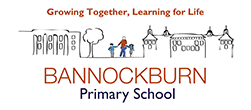Science
Science
As a Poly Scientist, you will embark on an exciting journey of discovery, safely exploring the wonders of Biology, Chemistry, and Physics through hands-on experiments. You will learn to think like a true scientist—observing carefully, analysing data thoughtfully, and drawing meaningful conclusions that help unlock the mysteries of our world. With a strong foundation in key scientific ideas, you will evaluate new techniques and understand how science shapes society, technology, and our future. Most importantly, you will nurture a natural curiosity and passion for learning that will drive you to grow, innovate, and make a positive difference in the world around you.
Key Stage 3
At KS3, we follow the national curriculum to guide our curriculum and assessment plan. Lessons are planned and delivered to enthuse the love of science and investigation skills in learners.
support materials and useful links
-
Fuse School Science Videos
Short, engaging videos that explain KS3 science concepts clearly with animations and real-life examples. Perfect for visual learners.
https://www.youtube.com/user/virtualschooluk
-
TED-Ed Science Lessons
Thought-provoking animated videos that explore fascinating scientific ideas and questions, sparking curiosity and discussion.
https://ed.ted.com/lessons?category=science
-
BBC Bitesize Videos
Concise, curriculum-linked videos that make complex topics easy to understand and remember.
(Available within the KS3 science section on BBC Bitesize)
Key Stage 3 Science Revision Books
-
Activate 1 Student Book
A comprehensive textbook covering Biology, Chemistry, and Physics for Key Stage 3 students. It includes clear explanations, practical activities, and exercises to support learning and revision.
Available here:
https://www.whsmith.co.uk/d/Activate-1-Student-Book
-
Collins KS3 Science Revision Guide
Designed to reinforce key concepts with revision summaries, practice questions, and exam tips. Covers all main KS3 science topics.
-
CGP KS3 Science Revision Guide
A popular and student-friendly guide with concise notes, diagrams, and practice questions across Biology, Chemistry, and Physics.
-
Pearson Revise KS3 Science
Aligned with the KS3 curriculum, this book offers revision activities, quizzes, and exam-style questions to build confidence and understanding.
Key Stage 4
AQA GCSE Combined Science/AQA Biology, Chemistry, Physics
AQA Trilogy Science Specification (Combined Science)
The AQA Trilogy Combined Science course is a rigorous Key Stage 4 qualification covering essential concepts in Biology, Chemistry, and Physics. It builds on Key Stage 3 foundations, such as those explored in resources like the Activate 1 Student Book and BBC Bitesize KS3 materials, preparing students for GCSE-level science.
This specification focuses on developing practical skills through a range of experiments, interpreting evidence, and understanding the social and technological implications of science. It aligns well with the skills fostered in the Poly Scientist mission of curiosity and critical thinking.
Assessment Structure:
-
Two written exams per science subject (Biology, Chemistry, and Physics), totalling six exams.
-
Each exam lasts 1 hour 15 minutes and includes multiple-choice, structured, closed short answer, and open response questions.
AQA Trilogy Specification (Separate Sciences - Biology, Chemistry, Physics)
This pathway allows students to study each science discipline separately but still within the AQA Trilogy framework. It offers more in-depth coverage of each subject.
Assessment Structure:
Students take two exams per science subject (Biology, Chemistry, Physics), totalling six exams.
Each exam is approximately 1 hour 45 minutes long, with varied question styles to test knowledge, application, and practical skills.
support materials and useful links
BBC Bitesize
Comprehensive revision notes, videos, and quizzes for all GCSE science subjects (Biology, Chemistry, Physics).
https://www.bbc.co.uk/bitesize/levels/z98jmp3
Seneca Learning
Interactive revision courses with practice questions and revision guides tailored for GCSE science.
https://www.senecalearning.com/
Physics & Maths Tutor
Detailed revision notes, past papers, and model answers for GCSE Physics, Chemistry, and Biology.
https://www.physicsandmathstutor.com/gcse-revision/science/
Freesciencelessons
Free video lessons and revision resources created by an experienced teacher covering all GCSE sciences.
https://freesciencelessons.co.uk/
Revision Science
Clear, concise revision notes and quizzes for all GCSE science topics.
https://revisionscience.com/gcse-revision/science
S-cool
Offers revision notes, quizzes, and exam tips, especially strong on exam technique.
https://www.s-cool.co.uk/gcse/science
Key Stage 5
Science has one of the largest sixth form in school. We offer a variety of courses in post-16.
- A-level Biology – OCR
- A-level Chemistry – OCR
- A-level Physics – OCR
- A-level Psychology – AQA
- BTec Level 3 Applied Science – EdExcel Pearson
- BTec Level 3 Forensics and Criminal Investigation – EdExcel Pearson
department information
Any specialist equipment required?
Students should bring scientific calculators to all lessons and equipment. Students should also have revision guides that can be purchased from the school via Wisepay.
Enrichment opportunities
STEM Week activities
School Trips
Clubs or Interventions
Future careers/university courses.
-
Biology-Related Degrees & Careers
-
Biology — Careers: Biologist, Wildlife Conservationist, Lab Technician
-
Biotechnology — Careers: Biotech Researcher, Genetic Engineer
-
Biomedical Science — Careers: Medical Laboratory Scientist, Clinical Researcher
-
Genetics — Careers: Genetic Counsellor, Research Scientist
-
Environmental Science — Careers: Environmental Consultant, Ecologist
-
Zoology — Careers: Zoologist, Animal Behaviourist
-
Marine Biology — Careers: Marine Biologist, Oceanographer
Chemistry-Related Degrees & Careers
-
Chemistry — Careers: Chemist, Quality Control Analyst
-
Biochemistry — Careers: Pharmaceutical Scientist, Biochemist
-
Pharmacology — Careers: Pharmacologist, Drug Developer
-
Chemical Engineering — Careers: Chemical Engineer, Process Engineer
-
Forensic Science — Careers: Forensic Scientist, Crime Scene Investigator
-
Materials Science — Careers: Materials Scientist, Product Developer
Physics-Related Degrees & Career
-
Physics — Careers: Physicist, Research Scientist
-
Astrophysics — Careers: Astrophysicist, Space Scientist
-
Geophysics — Careers: Geophysicist, Seismologist
-
Engineering Physics — Careers: Engineering Physicist, Technical Consultant
-
Medical Physics — Careers: Medical Physicist, Radiotherapy Specialist
Interdisciplinary Science Degrees & Careers
-
Natural Sciences (combines biology, chemistry, physics, earth sciences) — Careers: Scientific Researcher, Environmental Analyst
-
Environmental Science — Careers: Sustainability Consultant, Conservation Scientist
-
Science with Education — Careers: Science Teacher, Education Specialist
-
Agricultural Science — Careers: Agronomist, Soil Scientist
-
Food Science — Careers: Food Technologist, Quality Assurance Specialist
-
Social, Moral, Spiritual, Cultural (SMSC), British Values, and Safeguarding in Science
Science is the pursuit of understanding the world through evidence and inquiry. It reveals our place in the universe—sometimes making us feel small compared to the vast cosmos, yet also uniquely significant as individuals with distinct genetic identities. Through science, students develop a deeper awareness of our interconnectedness with the environment and the interdependence of all living things.
Moral considerations are integral to scientific study. Topics such as medical ethics, the environmental consequences of industry, and the allocation of government funding for research invite thoughtful discussion on complex ethical dilemmas. These conversations encourage pupils to develop critical thinking and responsible decision-making skills, fostering a strong moral compass.
Collaboration and openness lie at the heart of the scientific method. Pupils are encouraged to share ideas, data, and results openly, supporting peer review and collective progress. Working together on investigations enhances reliability and builds social skills, promoting respect, teamwork, and effective communication.
Science profoundly influences society and everyday life. Lessons provide opportunities to evaluate the social impact of scientific advances—recognising both benefits and challenges—helping pupils appreciate their role as informed citizens who can contribute to societal wellbeing.
Cultural awareness is embedded throughout science education. We celebrate diverse scientific achievements across different cultures and historical periods, exploring how discoveries have shaped beliefs, politics, and societies worldwide. This fosters respect for cultural diversity and enriches pupils’ global perspective.
Through this holistic approach, science teaching supports British Values such as democracy (through collaborative enquiry), rule of law (understanding ethical frameworks), individual liberty (encouraging curiosity and expression), mutual respect, and tolerance of different beliefs and cultures.
Safeguarding is paramount. Science lessons provide a safe environment where pupils feel secure to explore challenging ideas and express views respectfully. Discussions around sensitive issues, such as medical ethics, are handled with care to ensure inclusivity and emotional wellbeing.





